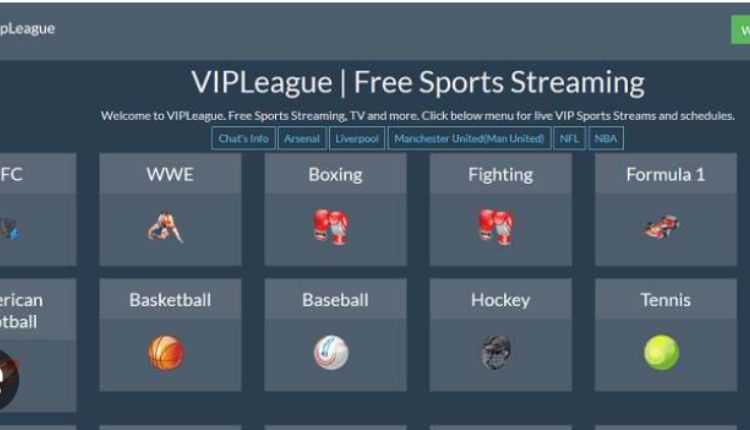In the modern digital age, the way we consume sports content has undergone a profound transformation. Traditional television broadcasts are now being challenged by innovative online platforms, and one such platform that gained attention in recent years is P2P4U. This article delves into the evolution, impact, and legal implications of P2P4U, a peer-to-peer sports streaming website, and its role in reshaping the sports media landscape.
The Rise Of P2P4U
P2P4U emerged as a response to the growing demand for accessible and cost-effective ways to watch live sports events. The platform utilized peer-to-peer (P2P) technology, which allowed users to share streams of sports events in real-time. Unlike traditional streaming services that rely on centralized servers, P2P4U leveraged the collective power of its users’ devices to distribute the streaming load. This innovative approach enabled the platform to handle a large number of viewers without the need for expensive infrastructure.
The Impact On Sports Consumption
P2P4U’s emergence had a significant impact on the way sports content was consumed. It provided viewers around the world with access to live sports events that were otherwise unavailable to them due to geographic restrictions or subscription costs. This democratization of sports content leveled the playing field, allowing fans from different parts of the world to share the excitement of their favorite teams and athletes.
However, the rise of P2P4U also raised concerns within the sports industry. Traditional broadcasters and leagues struggled to control the unauthorized distribution of their content, leading to revenue loss and potential disruptions in sponsorship deals. The shift from television to online streaming challenged the existing revenue models, forcing stakeholders to adapt their strategies to maintain profitability.
Legal And Ethical Considerations
The legality of P2P4U’s operations has been a subject of debate. While users argued that they were merely sharing streams among themselves without monetary gain, rights holders contended that the platform facilitated copyright infringement. The decentralized nature of P2P technology made it challenging to pinpoint responsibility and hold individuals accountable for unauthorized distribution. As a result, legal battles ensued, prompting discussions about the boundaries of fair use in the digital age.
Ethically, P2P4U raised questions about the importance of supporting the sports industry by paying for legitimate access. While some users appreciated the platform for providing free content, others recognized the need to contribute to the financial sustainability of sports leagues, teams, and athletes. This ethical dilemma highlighted the broader debate about the balance between convenient access and respecting the rights of content creators.
Conclusion
P2P4U, as a pioneering peer-to-peer sports streaming platform, left an indelible mark on the sports media landscape. Its innovative use of technology transformed how sports content was distributed and consumed. The platform’s impact on traditional revenue models and copyright infringement issues demonstrated the complex interplay between technology, legality, and ethics.
As the sports industry continues to evolve, P2P4U serves as a cautionary tale and a reminder of the challenges that arise when technology outpaces legal frameworks. Ultimately, its rise and fall underscore the importance of finding sustainable solutions that ensure fair compensation for content creators while meeting the demands of a global, digitally connected audience.
FAQs
- Is P2P4U still operational? As of my last knowledge update in September 2021, P2P4U had faced legal challenges and disruptions. However, I recommend checking current sources to get the latest information on its operational status.
- What are the alternatives to P2P4U for streaming sports? There are several legitimate sports streaming platforms available today, such as ESPN+, DAZN, and official league websites. These platforms offer legal access to live and on-demand sports content for a subscription fee. Always choose legal and authorized sources to support the sports industry and ensure high-quality viewing experiences.
